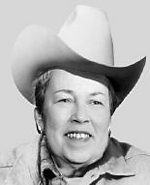“TEN YEARS AGO you’re paying $600 in [property] taxes, now you’re paying $2,600, and everything is the same,” is how Dan McGowan, an artist who lives in North Seattle, describes what he’s convinced is a near-universal dilemma in the Puget Sound region. Over the past few years some King County residents have seen their property values go up by 200 to 300 percent. The tax bills that have gone up accordingly may be a drop in the bucket to NASDAQ millionaires’ and office towers’ bank accounts, but it’s been a steady drip, drip, drip for senior citizens, artists like McGowan, and other average-income citizens who bought their houses a decade or two ago in what have since become hot neighborhoods.
Of course, as McGowan points out, everybody knows there is a problem. Thus, legislators have introduced 170 property tax relief bills so far this session. Only one, though, is still (barely) viable. In the state Senate, Valoria Loveland, D-Pasco, finally saw her long-held wish to grant a tax break come true when the Senate passed SJR 8212, a measure that would give voters the option of approving a $200 credit on 2001 property tax bills on all owner-occupied homes—rental homes would be excluded. The credit would gradually increase in ensuing years as incomes go up. Loveland says she’s confident that the measure will pass the House, see the governor’s approval, and go on to the polls this November (due to the state Constitution, citizens have to approve any law that would tax homes under different rules than businesses).
She may be wrong, however; the bill appears to have stalled in the House, where Democrats say there isn’t money to give everybody a break. North Seattle Democrat Mary Lou Dickerson says she and other House Dems believe the tax break might jeopardize funding for education, mass transit, and other services. They favor giving a $200-$500 credit to senior citizens only. The governor has reservations about Loveland’s bill too. He had hoped to give some property tax revenue back to school districts, and he’s concerned that the tax break could jeopardize his plan.
Loveland hadn’t expected these arguments. “I would not suggest that the Legislature do anything it can’t afford to do,” she says. She says her measure would only affect a pot of money that government can’t touch anyway. Under the provisions of Initiative 601, which caps the spending of state government, some property tax funds go into the state reserves, which can’t be tapped without a two-thirds majority in the Legislature. Year after year, the money builds up in those reserves and is now at $1.2 billion. The latest revenue forecast, unveiled just last week, shows that a new $115 million mini-fortune may be added to the sealed reserves. That’s too much money for the Legislature to sit on, says Loveland, and she believes that was the message citizens sent when they slashed car tab fees at the polls in November.
Even if the proposal does pass the Legislature, though, and citizens like McGowan have an opportunity to vote for it, expect to hear loud opposition from the business community. Tom Dooley of the Association of Washington Business says the bill is no good because it doesn’t give relief to business owners and landlords. He worries the government will eventually levy higher taxes on businesses to make up for the hole the credit creates.
On that fear, the AWB has common ground with Tim Eyman, sponsor of Initiative 695, which did away with car tab fees. Eyman’s hunch is that the Legislature is trying to pit homeowners against businesses so that it can later raise taxes on both. Besides, he says, there’s no point in “screwing up the Constitution for 200 bucks.”
These concerns resonate with Republican lawmakers. In the Senate, Republicans held their noses and voted for Loveland’s bill because, as some R’s pointed out in their opposition speeches, their own more far-reaching proposals and amendments were going nowhere. Senator Dino Rossi of Issaquah, the ranking Republican on the Ways and Means Committee, believes, like Eyman, that $200 isn’t a big enough amount to justify changing the Constitution. His party hopes to gradually ease out the state portion of the property tax for everyone. They fear that if the state doesn’t commit to doing that, citizens will pass an initiative to do it themselves.
But Senator Al Bauer, D-Vancouver, says from the average homeowners’ point of view, $200 is significant relief that Loveland’s bill offers citizens right now. Phasing out the state portion of the property tax, he says, could be devastating to the state’s economy. The state’s only remaining tax base, then, would be consumers who pay sales tax. Bauer says it’s going to be increasingly harder to rely on sales tax as Internet commerce grows in popularity, since thus far the Web is tax-free. “Sanity has to prevail,” he says. Moreover, he says it would have been unrealistic to extend property tax relief to everyone this session. Proposals along those lines, such as one the governor submitted, would have knocked only $25-$50 off citizens’ tax bills, an amount that for some people could quickly be eaten by increased assessments. “The public isn’t going to stand still” if that happens, says Bauer.
Time is of the essence for Loveland’s bill. Property tax relief might not come this session because the bill didn’t go far enough to satisfy some legislators or went too far for others. But its passage would at least make Dan McGowan feel that government was trying to do something for him. As he sees it, “Two hundred bucks is two hundred bucks.”





